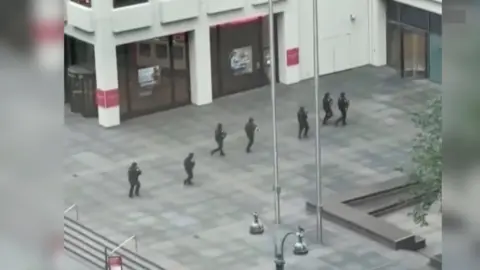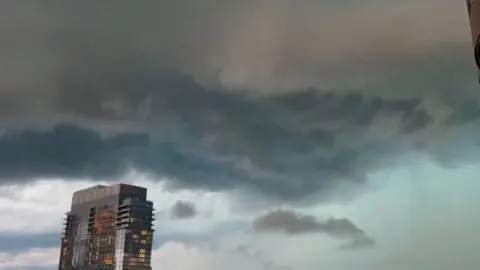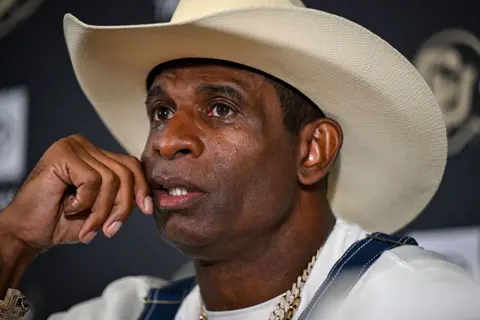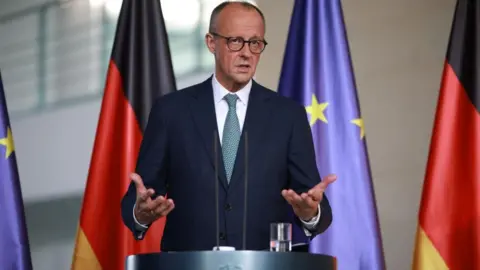Trump's Congo Peace Deal: A US Corporate Gold Rush?
A $25 Trillion Gamble: Trump's High-Stakes Peace Deal in the Congo
**Is a controversial peace deal in the heart of Africa about to reshape the global tech landscape?** The answer might surprise you. The Democratic Republic of Congo (DRC) holds an estimated $25 trillion in untapped mineral reserves – cobalt, copper, lithium – the very lifeblood of your smartphone, electric car, and the AI revolution. And President Trump is betting big on securing it.
 The Congo's Untapped Riches: A Treasure Trove and a Battlefield
Imagine a land overflowing with the minerals fueling the future: cobalt, copper, lithium – enough to power the next technological leap. That's the DRC. But this mineral wealth hasn't brought prosperity. Instead, it's fueled decades of brutal conflict, leaving millions displaced and thousands dead. Eastern DRC has become a battleground, with rebel groups like the M23 vying for control of these lucrative resources – much of which is currently flowing to China.
The Congo's Untapped Riches: A Treasure Trove and a Battlefield
Imagine a land overflowing with the minerals fueling the future: cobalt, copper, lithium – enough to power the next technological leap. That's the DRC. But this mineral wealth hasn't brought prosperity. Instead, it's fueled decades of brutal conflict, leaving millions displaced and thousands dead. Eastern DRC has become a battleground, with rebel groups like the M23 vying for control of these lucrative resources – much of which is currently flowing to China.
 The Trump administration, however, has a bold plan. It’s brokering a controversial peace deal between the DRC and neighboring Rwanda, aiming to unlock this untapped potential for US investors. But is it a glorious triumph, as Trump claims, or a risky gamble with potentially devastating consequences?
A New Model of Peace-Making: Deals and Diplomacy
The Trump administration, however, has a bold plan. It’s brokering a controversial peace deal between the DRC and neighboring Rwanda, aiming to unlock this untapped potential for US investors. But is it a glorious triumph, as Trump claims, or a risky gamble with potentially devastating consequences?
A New Model of Peace-Making: Deals and Diplomacy
 Trump's approach is unconventional. It blends high-profile diplomacy – think summit meetings with Congolese President Félix Tshisekedi and Rwandan President Paul Kagame – with hard-nosed deal-making. The goal: to secure access to the DRC's mineral wealth for US companies in exchange for peace and stability.
Experts like Prof. Alex de Waal see this as a "new model of peace-making," combining populist fanfare with commercial interests. But others, like Prof. Hanri Mostert, warn of potential pitfalls. She points to past resource-bartering deals, particularly China's infrastructure-for-oil deals in Angola, which left Angola with minimal benefits despite rising oil prices. The DRC, she argues, risks compromising its sovereignty.
Trump's approach is unconventional. It blends high-profile diplomacy – think summit meetings with Congolese President Félix Tshisekedi and Rwandan President Paul Kagame – with hard-nosed deal-making. The goal: to secure access to the DRC's mineral wealth for US companies in exchange for peace and stability.
Experts like Prof. Alex de Waal see this as a "new model of peace-making," combining populist fanfare with commercial interests. But others, like Prof. Hanri Mostert, warn of potential pitfalls. She points to past resource-bartering deals, particularly China's infrastructure-for-oil deals in Angola, which left Angola with minimal benefits despite rising oil prices. The DRC, she argues, risks compromising its sovereignty.
 The Price of Peace: Sovereignty vs. Survival?
The crucial question remains: what's the real cost of this peace? Will the DRC be locked into unfavorable long-term deals, sacrificing its future for short-term stability? Will the US secure access to vital minerals at the expense of Congolese self-determination? One thing is certain: the current agreement allows for a “regional economic integration framework” with details yet to be hammered out. This promises to block illicit trade routes, but what are the implications for Congolese control over their own resources?
The Price of Peace: Sovereignty vs. Survival?
The crucial question remains: what's the real cost of this peace? Will the DRC be locked into unfavorable long-term deals, sacrificing its future for short-term stability? Will the US secure access to vital minerals at the expense of Congolese self-determination? One thing is certain: the current agreement allows for a “regional economic integration framework” with details yet to be hammered out. This promises to block illicit trade routes, but what are the implications for Congolese control over their own resources?
 The situation is further complicated by the involvement of other players, including Qatar, which is pursuing its own interests in the region, potentially creating conflicting agendas and jeopardizing the fragile peace.
A Ceasefire – But Is It Lasting Peace?
The situation is further complicated by the involvement of other players, including Qatar, which is pursuing its own interests in the region, potentially creating conflicting agendas and jeopardizing the fragile peace.
A Ceasefire – But Is It Lasting Peace?
 A ceasefire is expected, but the road to lasting peace is paved with challenges. Will the M23 relinquish its control of territory and resources? Will Rwanda truly withdraw its support for rebel groups? And how will the long-standing conflict with the FDLR, a Rwandan militia operating in the DRC, be resolved? These are questions that remain unanswered.
The agreement, signed in Washington, is only the first step. The path ahead is fraught with complexities and risks. Experts warn that diplomatic efforts alone aren't enough; true peace requires addressing historical traumas and ensuring equitable resource management. This deal promises a lot, but whether it delivers lasting peace and prosperity for the Congolese people remains to be seen.
**What will happen next? Will Trump’s gamble pay off? Stay tuned for the next chapter in this high-stakes drama…**
A ceasefire is expected, but the road to lasting peace is paved with challenges. Will the M23 relinquish its control of territory and resources? Will Rwanda truly withdraw its support for rebel groups? And how will the long-standing conflict with the FDLR, a Rwandan militia operating in the DRC, be resolved? These are questions that remain unanswered.
The agreement, signed in Washington, is only the first step. The path ahead is fraught with complexities and risks. Experts warn that diplomatic efforts alone aren't enough; true peace requires addressing historical traumas and ensuring equitable resource management. This deal promises a lot, but whether it delivers lasting peace and prosperity for the Congolese people remains to be seen.
**What will happen next? Will Trump’s gamble pay off? Stay tuned for the next chapter in this high-stakes drama…**

Image 1

Image 2

Image 3

Image 4

Image 5

Image 6
Comments
Post a Comment